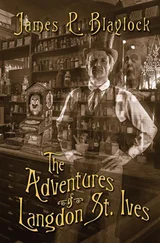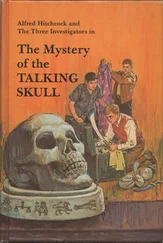James Blaylock - The Aylesford Skull
Здесь есть возможность читать онлайн «James Blaylock - The Aylesford Skull» весь текст электронной книги совершенно бесплатно (целиком полную версию без сокращений). В некоторых случаях можно слушать аудио, скачать через торрент в формате fb2 и присутствует краткое содержание. Жанр: sf_stimpank, на английском языке. Описание произведения, (предисловие) а так же отзывы посетителей доступны на портале библиотеки ЛибКат.
- Название:The Aylesford Skull
- Автор:
- Жанр:
- Год:неизвестен
- ISBN:нет данных
- Рейтинг книги:5 / 5. Голосов: 1
-
Избранное:Добавить в избранное
- Отзывы:
-
Ваша оценка:
- 100
- 1
- 2
- 3
- 4
- 5
The Aylesford Skull: краткое содержание, описание и аннотация
Предлагаем к чтению аннотацию, описание, краткое содержание или предисловие (зависит от того, что написал сам автор книги «The Aylesford Skull»). Если вы не нашли необходимую информацию о книге — напишите в комментариях, мы постараемся отыскать её.
The Aylesford Skull — читать онлайн бесплатно полную книгу (весь текст) целиком
Ниже представлен текст книги, разбитый по страницам. Система сохранения места последней прочитанной страницы, позволяет с удобством читать онлайн бесплатно книгу «The Aylesford Skull», без необходимости каждый раз заново искать на чём Вы остановились. Поставьте закладку, и сможете в любой момент перейти на страницу, на которой закончили чтение.
Интервал:
Закладка:
Dorothy Owlesby, blond and pretty, fretted over her husband Jack, who had also been bandaged by an adept Arthur Doyle. Doyle’s own left hand still oozed blood from the knife wound, which Doyle had stitched closed himself, sweating and grimacing, although St. Ives and Hasbro were both competent with a catgut suture. Doyle was apparently happy with the wound – a badge of honor – but clearly made an effort not to revel overmuch in the heroic nature of the part he had played in the episode. His evident bonhomie very nearly matched Tubby’s. St. Ives rose from his armchair and took his place at the table, taking himself in hand and putting on a pleased face.
“I can’t remember ever having eaten so well,” Tubby said, shoveling eggs and beans into his mouth and then mopping his face with his napkin. “A skirmish does wonders for a man’s appetite. Pass that beaker of coffee, if you will, and that jam pot.”
“You say something of the same thing every time you sit down to sup,” Jack said.
“There’s nothing out of the ordinary about that,” Tubby said. “There’s scarcely a human being on earth who doesn’t ask for the jam pot now and then. The jam pot is a philosophical item, Jack, much prized by the ancients. I beg you to consider that the Wildman of Borneo keeps a jam pot in his hollow tree, as does the Queen in her cupboard. Indeed, the jam pot is the homely object that puts us all on the side of the angels.”
“Not the jam pot, you oaf,” Jack said. “I mean that you insist absolutely that every meal is the best you’ve ever eaten. How can everything be the best of anything? If everything is the best, then it stands to reason that nothing is the best.”
“I deny it,” Tubby said. “The jam pot shows us the way. Every day it’s filled afresh, you see – a new start, the world constantly turning toward the morning. We’re blessed with a renewable appetite, and not just for food, mind you, but for the things of the world. That’s the golden secret of the marmalade in the jam pot. Imagine if an appetite were like hair, that fell out as you grew older, and never grew back. You’d be in a sad way, Jack.” He plucked a piece of toast out of the rack and slathered jam on it by way of illustration.
“I’m with you there,” Doyle said. “A hearty appetite of any sort is synonymous with life itself. And as for the English breakfast, to my mind it’s one of the wonders of the world. It seems to me that there’s something particularly artistic in its being served at the stroke of midnight.”
“Just so,” St. Ives said, looking at his pocket watch. “It’s already tomorrow, and I for one am heartily glad to see yesterday gone.”
They ate in silence for a time, devouring the food, making inroads into the toast and cutlets, which seemed to be in never-ending supply.
“What’s the state of this fabulous airship that Jack’s been telling me about?” Doyle asked William Keeble.
Keeble, whose appetite had awakened, and he with it, was illuminated by the question and at once set out to answer it. The airship would fly, he told them. The decorative elements wanted gilt paint, and he contemplated a figurehead of some sort – something that wouldn’t weigh it down too much by the nose. A pasteboard figure, perhaps, heavily varnished against the weather.
“We’ll gild the lily in due time,” St. Ives said. “Tomorrow we’ve got to be about our business, however, if only we know what it is. She’s airworthy? You’re certain of it?”
“Oh, yes. Quite certain. I spent the better part of the last two days on what might be called ‘finishing touches.’ Just this afternoon I fitted a fine brass periscope to a swivel on the craft’s undercarriage, built on the design of Marie-Davy, which will reflect an image onto a lens in the gondola. The periscope can sweep the field of view, quite uninhibited. Farther astern sits a Ruhmkorff lamp that will cast a light for a hundred feet or so in the dead of night. Quite blindingly bright, if I do say so myself.”
“Tell them about the perpetual motion you’ve invented, Father,” Dorothy said. “It’s phenomenally clever.”
“It’s not perpetual motion at all,” Keeble said, smiling lovingly at his daughter, “although it’s very like, I must say. And I did not invent it; I merely had my way with another man’s invention – a giant of a man, so to speak, upon whose shoulders I stood. I’ve built a bladed weathervane, if you can picture it, a propeller, which swivels with the direction of the wind, so that the blades spin constantly, their motion turning the disks in what is known to science as a Wimshurst influence machine. The electrical charge produced by the machine flows into an array of simple Leyden jar batteries. Under the right conditions there’s no reason the dirigible shouldn’t circumnavigate the globe, providing its own motive power with the help of the wind.”
“That’s as perpetual as anything ,” Dorothy said.
“Indeed it is,” Tubby put in. “It’s the jam pot come again.”
“The jam pot,” Keeble said. “Just so. Of course.” He blinked at Tubby several times, as if unable entirely to fathom the figure of the jam pot. “My men have begun the production of hydrogen, and the void has been filling for many hours.”
“The production of hydrogen?” Tubby asked. “One hires an alchemist, perhaps, to conjure it out of the aether?”
“No indeed, sir. It’s a simple business,” Keeble said. “One asks one’s apprentice to drip vitriol onto iron shavings. Hydrogen gas rises in the reek like a very phoenix, filling the body of the dirigible through an inverted funnel. In short order, the balloon is anxious to take flight, and will do so unless it’s moored to the ground.” He smiled at them over the rim of his coffee cup, very apparently happy with his revelations.
“My only… apprehension…” he said, “has to do with flying the craft in a lightning storm, which might lead to an explosive result.”
“ Explosive? ” Tubby said. “It’s a sort of floating squib, then?”
“After a fashion I suppose it is, although I’ve attached an experimental lightning rod of sorts that should draw away unwanted sparks or electrical charges.”
“What’s the nature of this rod?” asked Doyle. “It’s not grounded, as they say. It cannot be, since the ship would be nowhere near the ground.”
“The device consists of a solid glass ball mounted on the end of the bowsprit,” Keeble said, “much like the lightning inhibitors atop masts of ships at sea. It cannot be adequately tested without endangering the craft, of course, but theoretically everyone in the gondola should be as safe as babies. Nothing to worry about there, I assure you. Nothing at all. Perfectly safe.”
Doyle nodded, perhaps out of a desire to be agreeable.
“We’ve been told that you’ve built a miniature example of this Ruhmkorff lamp,” Hasbro said to Keeble.
“Oh, yes,” Keeble said. “Wonderfully small, but throwing a prodigious bright beam. I built only the one example, although another man has recently commissioned a second. He seems to be quite anxious about it.”
“Do you know the name of the man who commissioned the first?” St. Ives asked.
“A fellow named George Kittering. Very polite cove. Extraordinarily round head, it seemed to me.”
“The ubiquitous George! Of course,” St. Ives said. “We’re well acquainted with George, chatted with him tonight, in fact. I’d be surprised if half London doesn’t call him by name. This second commission – there was no apparent connection between it and the first? Not our man George again?”
“No, indeed. The second was a Dutchman named de Groot, the secretary of someone highly placed, or so he told me. Whom I can’t say, and it scarcely seemed politic to ask. He was a stout man with short legs, who sweated profusely. Very florid all the way around, including his hair and beard, which were red as a newt.”
Читать дальшеИнтервал:
Закладка:
Похожие книги на «The Aylesford Skull»
Представляем Вашему вниманию похожие книги на «The Aylesford Skull» списком для выбора. Мы отобрали схожую по названию и смыслу литературу в надежде предоставить читателям больше вариантов отыскать новые, интересные, ещё непрочитанные произведения.
Обсуждение, отзывы о книге «The Aylesford Skull» и просто собственные мнения читателей. Оставьте ваши комментарии, напишите, что Вы думаете о произведении, его смысле или главных героях. Укажите что конкретно понравилось, а что нет, и почему Вы так считаете.










